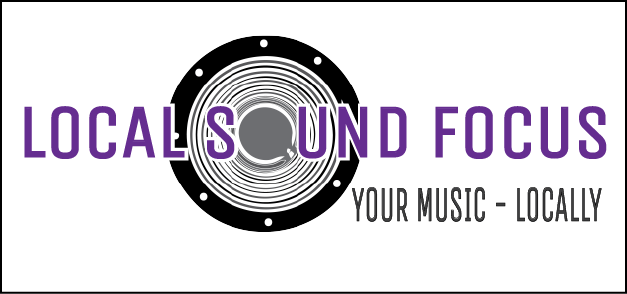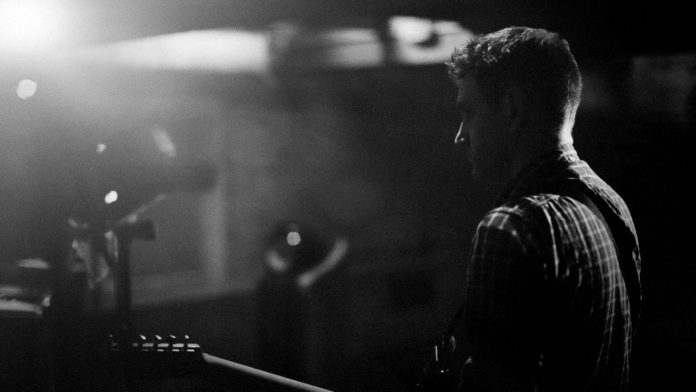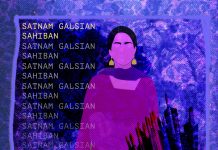Acclaimed British composer John Metcalfe brought three musicians and a mighty array of electronic gear to the intimate and atmospheric gig room at The Castle on Oldham Street. Respected as a composer of contemporary music, arranger of pop songs and creator of genre-crossing electronic musical soundscapes, Metcalfe is a fully-fledged conservatoire musician who clearly enjoys slinging a guitar round his neck and playing to a sweaty crowd in an old-fashioned pub venue. On paper his music may sound rather art-house, but in the flesh it was an utterly convincing display of live music which was clearly enjoyed by a crowd of ‘proper music’ fans. The band demonstrated impressive technical skills, conjured heady moods and gave a virtuosic performance across many styles of music, with Metcalfe as a sorcerer-like figure at the front. With only upright bass, drums, loops and vocals to back John Metcalfe’s own contribution on viola, guitar and keyboards, the sound of a huge orchestra filled the small room. The crystal clear soundscape they produced was a considerable technical achievement.
Rosie Doonan’s beautiful and breathy vocals brought a human but also ethereal sound on certain tracks, her voice more like an instrument adding another layer than a vehicle for elaborated lyrics which detract from the music. This was part of a determined attempt by the composer not to have singalong choruses or narratives, and to focus on sound, which for a composer associated with minimalist music, is an imperative. Much of the music was mild and meandering in character, with simple single note lines interweaving in slowly changing formation. But certainly there were fiery moments. The muscular sound of Ali Friend on upright bass and the hard-edged beats of Daisy Palmer on drums cooked up pulsing dance rhythms which made the crowd dance and flail their arms.
Metcalfe himself is an instrumentalist completely in control of the instruments he uses; every note was perfectly executed and shimmered through the prism of electronic delays and loops. But it was not about personalities, and in a self-effacing conversation after the gig, he explained his lifelong fascination with…. well, the sound of music. It is the music itself rather than the egos of the players that shone through, all parts meshing together into a rich, multi-layered weave. If sounds can shine, then this band certainly made them. In discussion, John Metcalfe explained that as a viola player in classical situations, you don’t get to play the ‘top line’ very often, so his view of music has always been looking out from the works as it were. This explains his mastery of textures, and his comparative disregard for obvious melodies or formulaic structures such as verse, chorus, middle eight or the like. This may not of course appeal to all ears; a great deal of conventional music of many kinds is built on formulaic use of tension and release, discord and resolution. Audiences like big anthemic melodies and dramatic solos on their favourite instruments, whether it’s Yehudi Menuhin or Carlos Santana. Thus there were times in this music when I felt I was waiting for something to happen. But what Metcalfe undoubtedly does with total integrity is present exquisite sounds to the ear, and almost say to the listener: my music is the question not the answer, you make of it what you will. Undoubtedly, he had this audience on his side from the outset. Further and perhaps more importantly, Metcalfe is one of the great, successful exponents of the new eclecticism of contemporary music. It was not very long ago that musicians from different traditions treated each other’s music as alien, and were suspicious or even disdainful about genres other than their own. Happily now, chart, art, jazz, classical and world musicians are respectful and open-minded about each other’s work and for the rest of us, this can only enrich the world of music and inspire the next generation of musicians.








